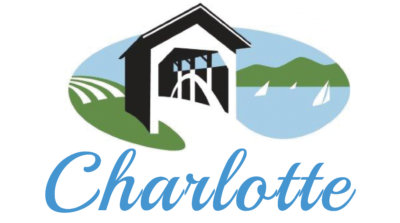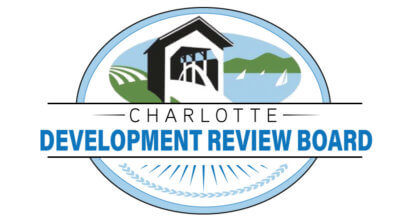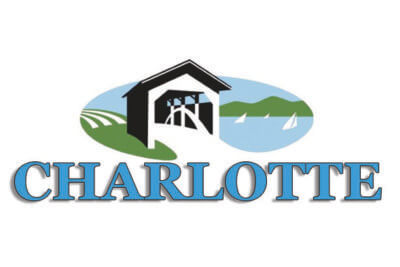Charlotte zoning administrator turnover saga continues
Six years and eight zoning administrators.
The saga of Charlotte’s difficulties in hiring and keeping a zoning administrator continues.
On Monday, June 6, at a special meeting of the selectboard dedicated to an executive session to discuss a personnel matter, the board reconvened in public session and voted unanimously to advertise for a new zoning administrator.
Current zoning administrator Keith Oborne has resigned.
Some say Oborne’s resignation is further evidence of something wrong in Charlotte’s town government or at least in its planning and zoning office.
Others, including town a dministrator Dean Bloch, believe the turnover of zoning administrators is consistent with what other Vermont towns are experiencing in having trouble hanging onto and filling that position.
dministrator Dean Bloch, believe the turnover of zoning administrators is consistent with what other Vermont towns are experiencing in having trouble hanging onto and filling that position.
“The current zoning administrator’s performance has been excellent,” said Bloch, who neglected to talk or email about the situation, in a social media post. “He is leaving for personal reasons; he was not asked to leave.”
Zoning administrator might be the hardest town job, Bloch said: “There are constant time pressures, complex town and state regulations that require interpretation, conflicting goals between parties and occasionally difficult personalities. The permitting and enforcement processes can be stressful for all parties, and this can bring out the less pleasant side of people going through the process. And sometimes doing a good job means taking unpopular positions.”
He included in his post a partial timeline of Charlotte zoning administrators since 2013: Jeannine McCrumb (December 2013-April 2016), Aaron Brown (March 2018-July 2019) and Wendy Pelletier (April 2021-December 2021).
His timeline left out Joe Rheaume, a former Colchester police officer who began filling in at the position after McCrumb left; Lee Krohn, current Shelburne town manager who was formerly with the Chittenden County Regional Planning Commission which loaned him to temporarily work in the position during the summer of 2017; Daniel Morgan (July 2019-December 2020); and town planner Larry Lewack, who also filled in as zoning administrator after he was hired in January 2021 until Pelletier was hired three months later.
The positions of zoning administrator and town planner were combined for a while, but after Morgan was pressured to resign because of performance issues, the selectboard decided the two jobs were too much for one person and the positions were separated.
At the time of Pelletier’s resignation, the reason given was that she had two bed-ridden family members and the pressure of helping with their care and fulfilling her job responsibilities was too much.
During the current controversy, there have been allegations that the pressure of balancing work and care for her family members wasn’t the sole reason for Pelletier’s leaving.
At the zoning board meeting on Nov. 17, 2021, Eli Lesser-Goldsmith, who was a member of that now-defunct board for just a few months before it was replaced by the development review board, challenged Pelletier in an appeal of zoning violations for an event at Charlotte Crossings.
In September 2021, Pelletier issued four zoning violations for an unpermitted music event to Backyard Bistro, one of the tenants of the multi-use commercial building on Route 7 south of Ferry Road. Lesser-Goldsmith cast the lone vote on three of the votes on rescinding the violations — for not having a permit, for violating parking restrictions and for exceeding the restaurant’s seating limit.
The zoning board voted unanimously to rescind the fourth violation for moving gravel in a wetland buffer area.
At the appeal hearing, Lesser-Goldsmith asked the zoning administrator what her relationship was with all the businesses in Charlotte. Pelletier objected to the question as irrelevant and said she couldn’t know all the businesses in Charlotte.
Lesser-Goldsmith said all the businesses “are tied to permits” that she regulated.
The town doesn’t have a perfect system, Pelletier said, but that she strived for fairness. At this point her voice waivered as she was on the verge of tears.
A couple of people who were at that meeting have said they tried to console Pelletier after the meeting, but two days later she turned in her resignation, citing her family’s health issues.
Selectboard member Frank Tenney said he was one of the people who consoled Pelletier, told her she was doing a good job and encouraged her to stay. He said he has been unfairly and inaccurately blamed for some of the zoning administrators leaving.
“I’m tired of being the fall guy,” Tenney said in a phone conversation.
In particular, Tenney took exception to the assertion in an April 26 article in The Bridge about an email from Oborne to Bloch complaining about excessive supervision. Tenney said he was not the person Oborne was complaining about. But he wouldn’t say who was.
“I have some serious concerns about the perception of my position and competency in the eyes of the selectboard,” Oborne wrote, questioning, probably facetiously, whether there was another zoning administrator that “he didn’t know about.”
Tenney declined to say who he thought Oborne was referring to, but said they have a good relationship.
Oborne confirmed that he was not referring to Tenney, as the article and selectboard chair Jim Faulkner had assumed in an April 25 executive session where the sound was inadvertently left on for a few minutes. Faulkner could be heard saying that Tenney was interfering in the planning and zoning office.
At that meeting, Tenney was removed as the selectboard liaison to that office.
Oborne said his interactions with Tenney have been professional and characterized their relationship as “good.” But Oborne declined to say who he was referring to in his April email.
Selectboard member Matt Krasnow said the turnover in zoning administrators is not unique to Charlotte.
“I think there’s at least two towns currently advertising, and you can always find some town looking for a zoning administrator,” Krasnow said.
He would like to see a study of the average length of time Vermont towns keep zoning administrators. If Charlotte did fall outside the standard deviation for keeping zoning administrators, Krasnow said, that is definitely something the town should look into. He isn’t convinced yet that the town is out of the norm in retaining people in this position.
“It’s a relatively entry level position and expecting someone to grow in the position and stay at an entry level wage as they mature, doesn’t really happen in any industry,” he said.
Krasnow feels the town has done good work in recent years to attract and retain planning and zoning employees by increasing pay, by separating the zoning administrator and town planner positions and by adding a planning and zoning assistant.
The turnover at the position is also symptomatic of the labor shortage across the job market. He cited a recent news report saying there are three jobs available for every person looking for work.
“It’s a real issue across every sector — retaining employees and being able to hire employees,” said Krasnow.
Town clerk Mary Mead addressed the zoning administrator situation during the public comments portion of the selectboard meeting this past Monday, June 13, saying Oborne was good at his job and that the board should work harder to keep him.
As of Monday afternoon, Oborne said he had resigned but hadn’t submitted a resignation letter. He said the date of his departure was “fluid.”
As to whether there was a chance he could be persuaded to stay, Oborne had no comment.
Related Stories
Popular Stories
If you enjoy The Charlotte News, please consider making a donation. Your gift will help us produce more stories like this. The majority of our budget comes from charitable contributions. Your gift helps sustain The Charlotte News, keeping it a free service for everyone in town. Thank you.
Bill Regan, Chair, Board of Directors





